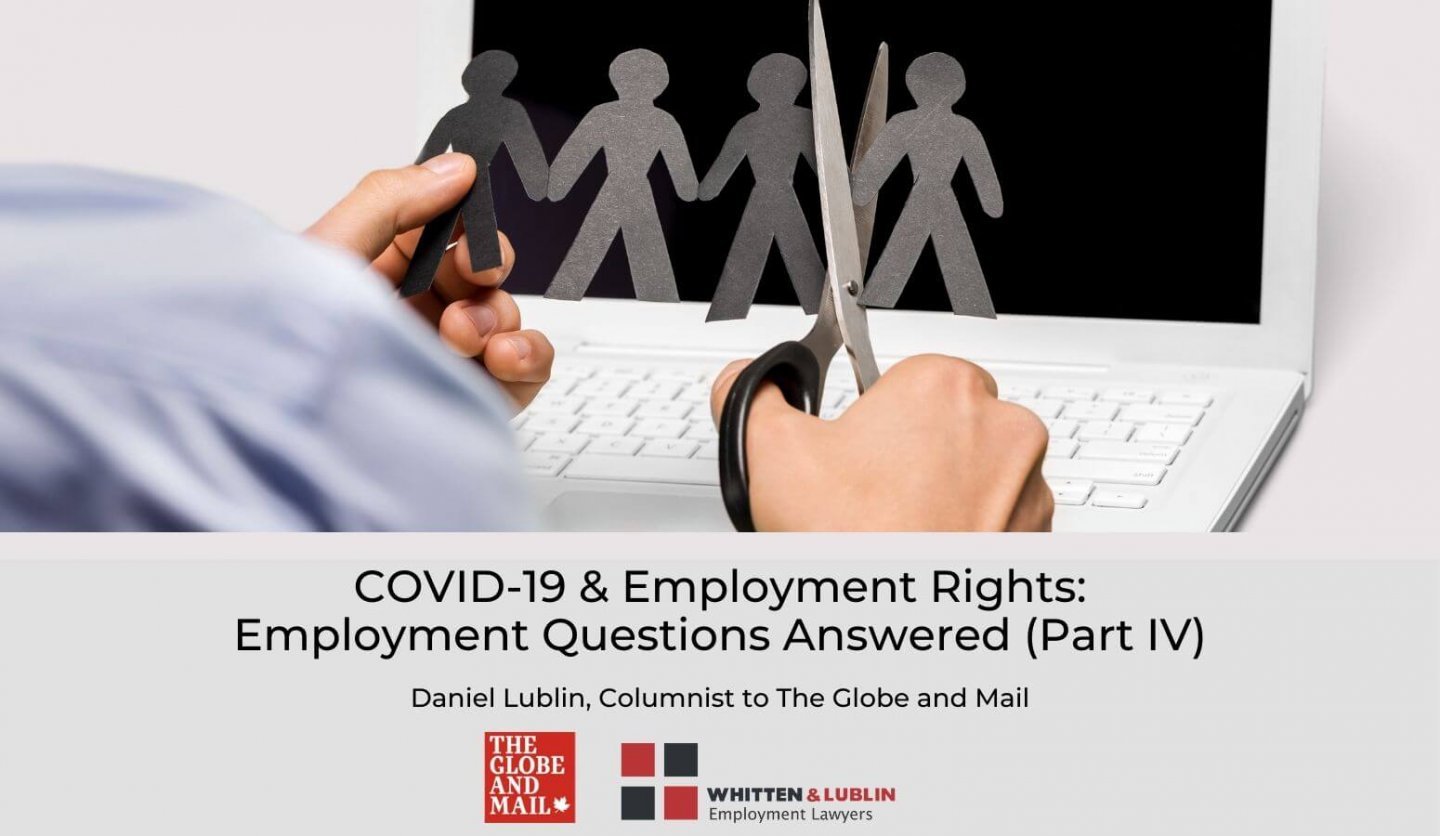
COVID-19 & Employment Rights: Employment Questions Answered (Part IV)
DANIEL LUBLIN, SPECIAL TO THE GLOBE AND MAIL
Daniel Lublin, a Partner and Employment Lawyer at Whitten & Lublin Employment and Labour Lawyers, talks to The Globe and Mail to answer some of the employment questions revolving around COVID-19 & employment rights.
Does my employer have to provide me with my job back after the temporary layoff ends? Will my tenure continue upon a recall?
Your employer does not need to recall you but you have rights if you are not recalled.
As stated in an earlier posting, a temporary layoff can be illegal from the outset. However, if you do not pursue a legal claim due to the layoff and your employer does not recall you to work within the maximum time frame permitted under the provincial or federal employment statute that applies to you, then your employment is clearly terminated as of that point and you are entitled to severance.
Furthermore, many employees will not necessarily be offered their exact roles back if they are recalled to work. If the role that is presented following a layoff is drastically different and inferior, employees may also be able to treat that as termination and claim severance, even though there was a recall notice.
If you are recalled to work following a layoff, your employment tenure must be treated as continuous.
[yotuwp type=”videos” id=”FyNdGKsElZA” ]
If I choose to stay home due to COVID-19, am I eligible for government benefits (EI or CERB)?
Voluntary decisions to leave work and self-isolate disqualify you from EI or the CERB. This is where the Government has presently drawn its line. Workers cannot lay claim to these benefits unless they were compelled to stop working due to COVID-19. Individuals who elect to stay home based on a more general concern over the health and welfare of others would not receive Government assistance.
There are exceptions. If the workplace is unsafe, then you should make a health and safety complaint and you may have the right to refuse to work and withdraw from the workplace, especially if the employer is not taking the correct steps to ensure your safety. In these circumstances, you should qualify for the CERB.
However, if your employer is taking the necessary steps to ensure the workplace is safe to perform your job, then should you choose to leave work and stay home, your absence would be unpaid and you would not qualify for Government support.
Human rights laws also require that employers accommodate employees who have a medical condition or who must provide direct care to a parent, child, or spouse who has a medical condition that places them in a higher risk category of contracting COVID-19. In these circumstances, an employer must attempt to find a solution that would allow these employees to continue to work but socially distance as much as possible. If an employer fails to accommodate an employee who legitimately requires it in these circumstances then that employee’s decision to stay home should not disqualify him or her from Government support benefits. This would be in addition to human rights damages that would arise through a legal claim against an employer who was capable of accommodation but declined it.
If you’ve got more COVID-19 & employment rights questions about salary during Coronavirus, please contact us. With years of experience in this ever-changing area of law, we at Whitten & Lublin are happy to provide insight and advice into your specific circumstances. If you’re looking for employment lawyers and would like more information about what Whitten & Lublin can do for you, please contact us online or by phone at (416) 640-2667 today.
Share:
Share on facebook
Share on twitter
Share on linkedin



